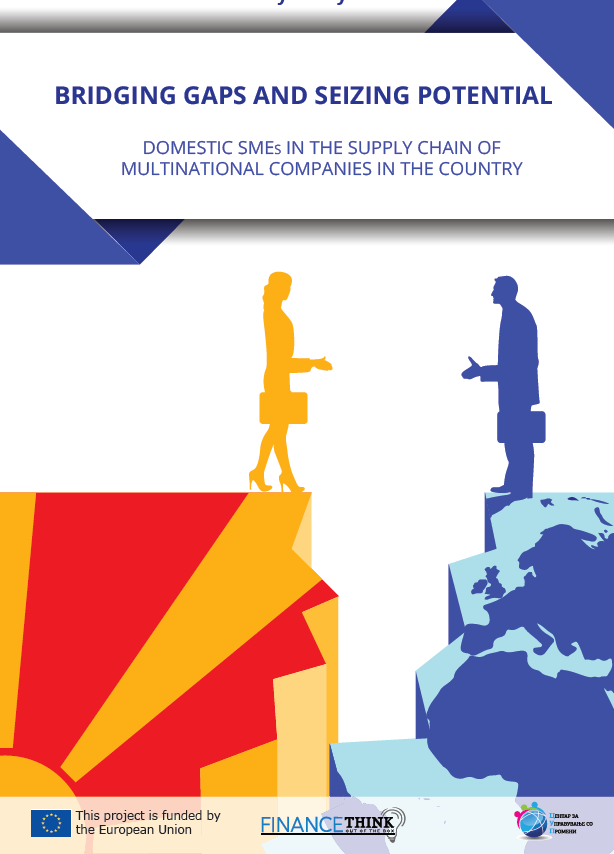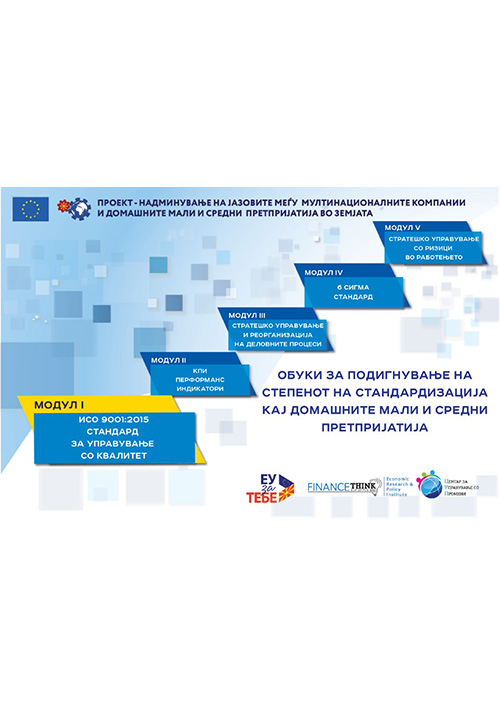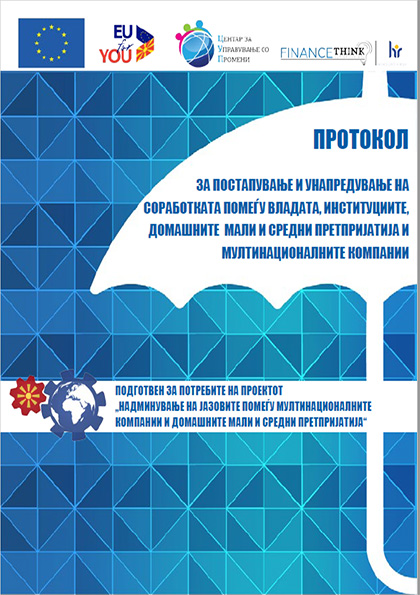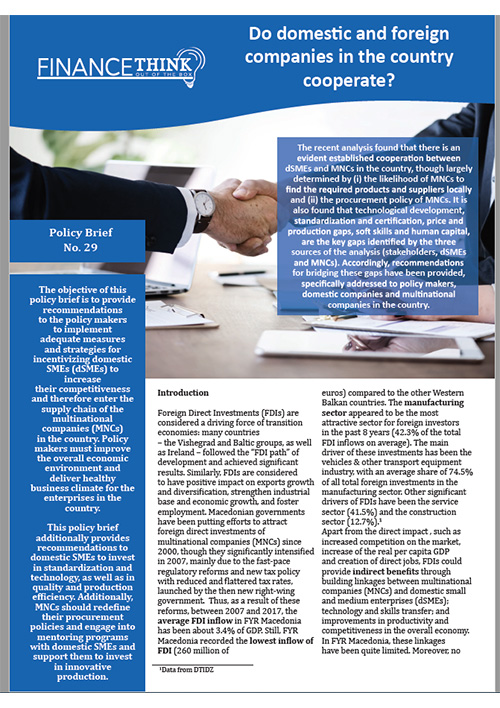Research

Domestic SMEs in the supply chain of multinational companies in the country
Author: Iva Trajkovska & Blagica Petreski
year: 2019
The objective of this policy study is to understand the gaps and potentials for inclusion of dSMEs into the supply chain of the MNCs operating in FYR Macedonia. Between 2007 and 2017, the average FDI inflow in FYR Macedonia has been about 3.4% of GDP, although lower than the other countries in the region. The main benefits of the FDIs inflow are: the sectors and export diversification (50% of the total FDIs are concentrated in the manufacturing and mining sectors, while the Herfindahl index dropped from 14.3% in 2005 to 9.6% in 2015), import coverage and more than 15,000 jobs created. Apart from the direct impact, FDIs could provide indirect benefits through building linkages between Multinational companies and domestic small and medium enterprises; technology and skills transfer; and improvements in productivity and competitiveness in the overall economy. In FYR Macedonia, these linkages have been quite limited. The analysis is based on a mixed method approach, including: semi-structured interviews, a focus group and online surveys. The aim of both the semi-structured interviews and the focus group was to gain a rather general perspective on the factors affecting the cooperation between dSMEs and MNCs, as well as motives, intentions and barriers for their cooperation. The focus group was conducted with five dSMEs, out which two companies have successfully established cooperation with MNCs, one company that is starting a negotiation process for cooperation, two companies that are export-oriented and have some experience with MNCs in the country but are not fully cooperating with them.






